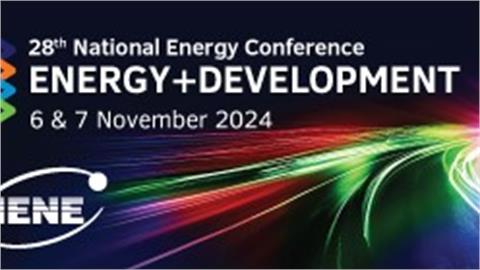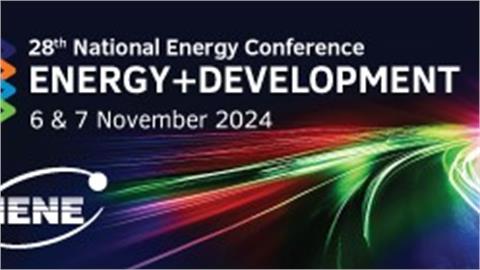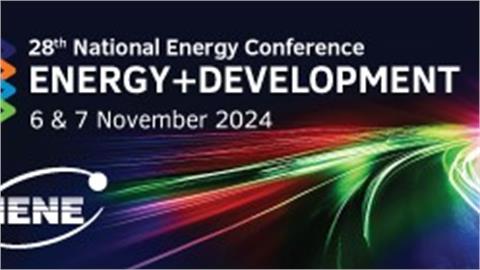IENE’s Colloquium on "The Critical Choices for RES
Investments in Greece” that took place yesterday afternoon, April 4, , at the
Athens Chamber of Commerce and Industry (ACCI) highlighted the critical
condition of market operation in the Greek RES sector, as well as the
responsibility of all government and regulatory authorities and organizations
involved.
Mr. Michalis E. Philippou, Operational Manager of Electricity Transactions of the Greek Electricity Market Operator (LAGIE S.A.), stressed that the RES market operation will soon "get out of control”, thus underlining the need for immediate measures to be taken by the government in order to secure adequate funding to enable the functioning of the operator, the channeling of regular payments to producers and, ultimately, to bring relief to the market from the current financial pressures.
As the "sunset” effect is now taking hold in the Greek PV sector, too, Mr. Philippou said that PV stations operating during the rush hour have now icreased so much in number, that they significantly affect the system’s electric load, causing stability problems. As far as LAGIE’s ever growing financial deficit is concerned, Mr Philippou referred to the Operator’s projections for 1,5 bl. euros for this year’s income and of liabilities exceeding 2 bl. euros. According to these figures, the overall deficit will eventually rise to 700 milion euros, which is clearly an unsustainable situation.
Prof. Pantelis Kapros, of E3MLab/NTUA and Chairman of IENE's Scientific Committee wondered whether there has been at all any planning by the State and not just a heap of inconsistent and populist actions (e.g. "agrarian PV”) taken by several governments during recent years, which has led Greece’s RES market to its present deadlock.
According to Mr. John Chatzivasiliadis, Mechanical – Electrical Engineer, and IENE’s Secretary General, several issues concerning the RES sector have been misinterpreted by both the investors and the policymakers. He referred to the interconnection of the islands in the Aegean with the mainland which, although it is agreed by all concerned as a much needed action to help the expansion of the country’ s grid, it is often perceived as a solution exclusively for RES electricity generation. As Mr. Chatzivasiliadis highlighted, there are other "popular” ideas, as the offshore wind farms, which are, however, an expensive technology unsuitable for Greek seas.
In addition, representatives of the main RES industry associations presented their views on the urgent problems stemming from the enormous and rising deficit of the Electricity Market Operator. As Mr. Mr. Stelios Loumakis (Chairman, Greek Association of Photovoltaic Producers - SPEF), noted thefee imposed through Law 4083 failed to solve the problem, as it has an asymmetric effect on the electricity producers from RES, due to its lack of proportionality as far as the size of the units and the construction costs are concerned compared to the FIT paid to the producers. Consequently, a disproportionately large amount of producers is severely affected and will inevitably face bankruptcy.
Other speakers representing the RES associations included Dr. Savvas Seimanides (Secretary General, Greek Association of RES Electricity Producers), Dr. Panagiotis Papastamatiou, (Chairman, Hellenic Wind Energy Association - ELETAEN), Mr. Alexandros Zachariou (Chairman, Hellenic Association of Photovoltaic Companies - SEF), Mr. Elias Kakiopoulos (Secretary General, Greek Association of Small Hydropower Producers - ESMYE) and Mr. Antonis Gerasimou (Chairman, Hellenic Biomass Company - HELLABIOM). Also, Mr. Dimitris Varvitsiotis (Chief Operation Officer, Solar Cells Hellas), at his presentation, stressed the importance of the fast track procedure for accelerating the licensing procedure of RES projects in Greece.
IENE’s Colloquium on the viability of RES investments, held under the auspices of ACCI, aimed primarily at highlighting the need for the adoption of urgent measures in order to restore the balance of RES market operation and, thus, to guarantee the viability of the investments and the further development of the grid, as well as the safeguarding of the overall energy sector and its consumers from excessive charges.
This IENE Colloquium was sponsored by the energy services company EnSCo, as well as by the PV companies Sky Solar and Solar Cells, whereas the event’s media partners included the daily "Kathimerini” and the Energia.gr website.



